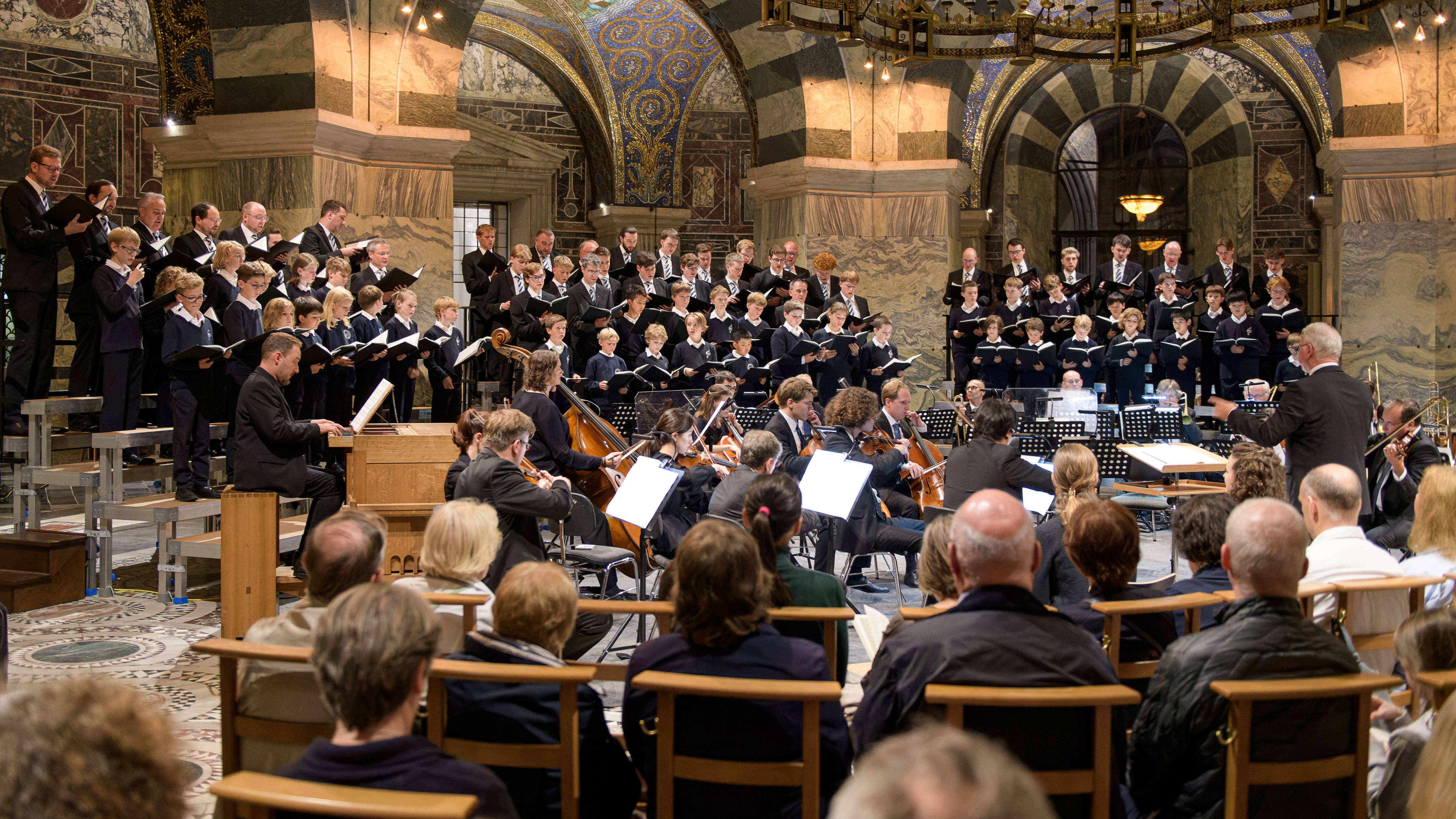Aachen Cathedral Choir
As an outstanding ruler of the Middle Ages, Emperor Charlemagne (born presumably in 748, died on 28 January 814) not only guided the political fortunes of Europe, but also exerted considerable influence on the improvement of education, the development of the liturgy and the dissemination of church music of the time. Thus, in Charles' famous court school (Schola Palatina), the seven liberal arts were taught, which, quite significantly, included music. In Charlemagne’s imperial palatine chapel, schoolboys and clergy sang together the Cantus Romanus, today's "Gregorian" chant. Over the centuries, polyphonic motets and mass compositions were added in great stylistic variety.
As the oldest German boys' choir, the Aachen Cathedral Choir goes back to the "Schola Palatina". More than 1200 years after its founding, the choir still focuses its activities on the musical interpretation of the liturgy in Aachen Cathedral. Highlights of the choir's artistic work are the musical arrangements of the services at the Aachen Pilgrimage, the regular performances of Johann Sebastian Bach's Passions two weeks before Easter and the large choral symphonic works in the so-called Oktobermusik, which since 1945 has commemorated the end of the war in Aachen
annually in gratitude.
Concert tours in recent years have taken the choir to Switzerland, Italy, South Korea,
Spain, the Balkans, South Africa and Malta. In October 2016, the choir travelled to Brazil. Special highlights include the participation of the Cathedral Choir in the Charlemagne Prize awards of the city of Aachen to Pope John Paul II in 2004 and to Pope Francis in 2016 in Rome. The Aachen Cathedral Choir maintains a lively exchange with renowned boys' and youth choirs far beyond European borders. In 2013, together with the youth choir "Svonky" Prague, the Cathedral Choir received the Aachen Culture Award for this cultural-political activity: the Emperor Charles IV Medal.
